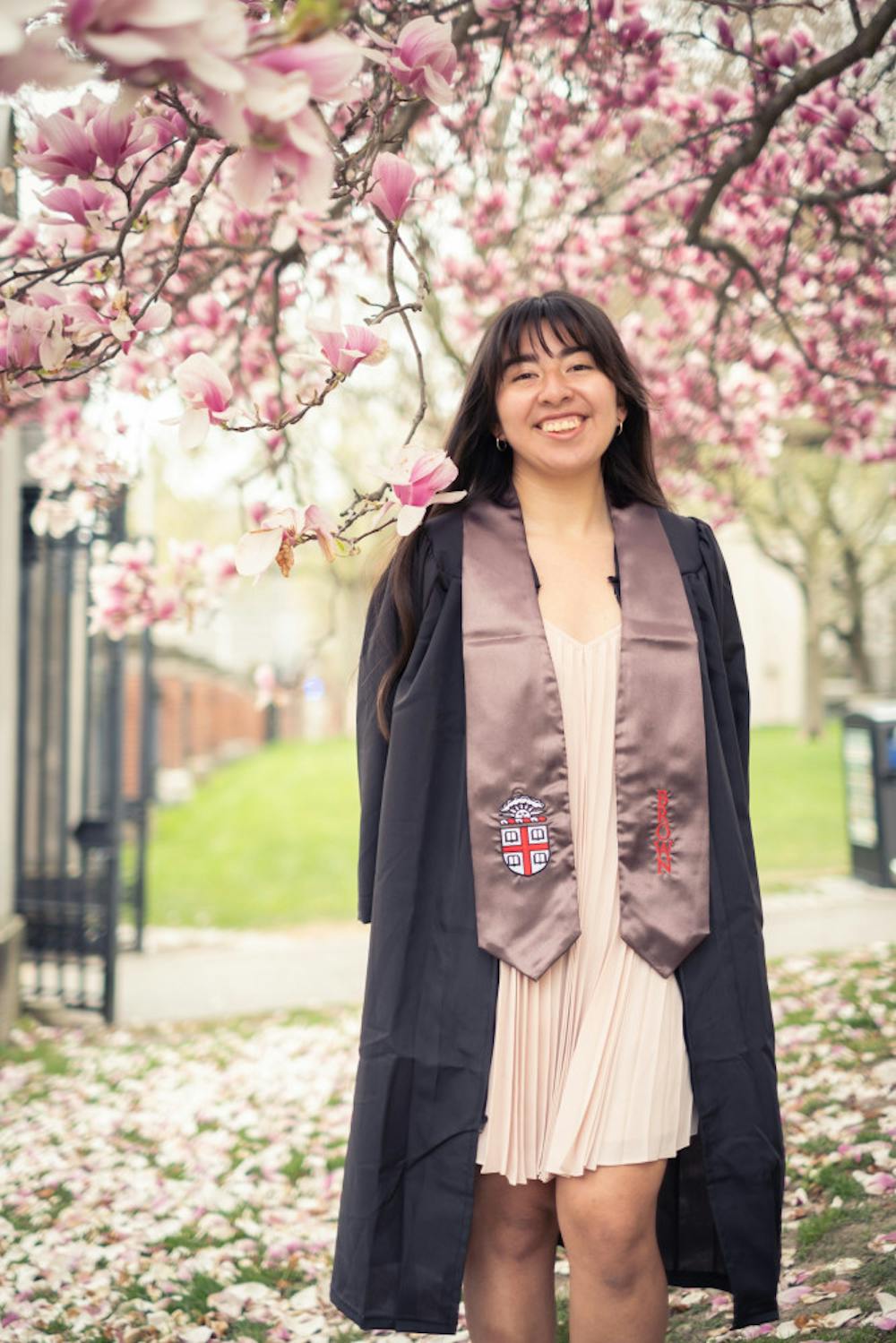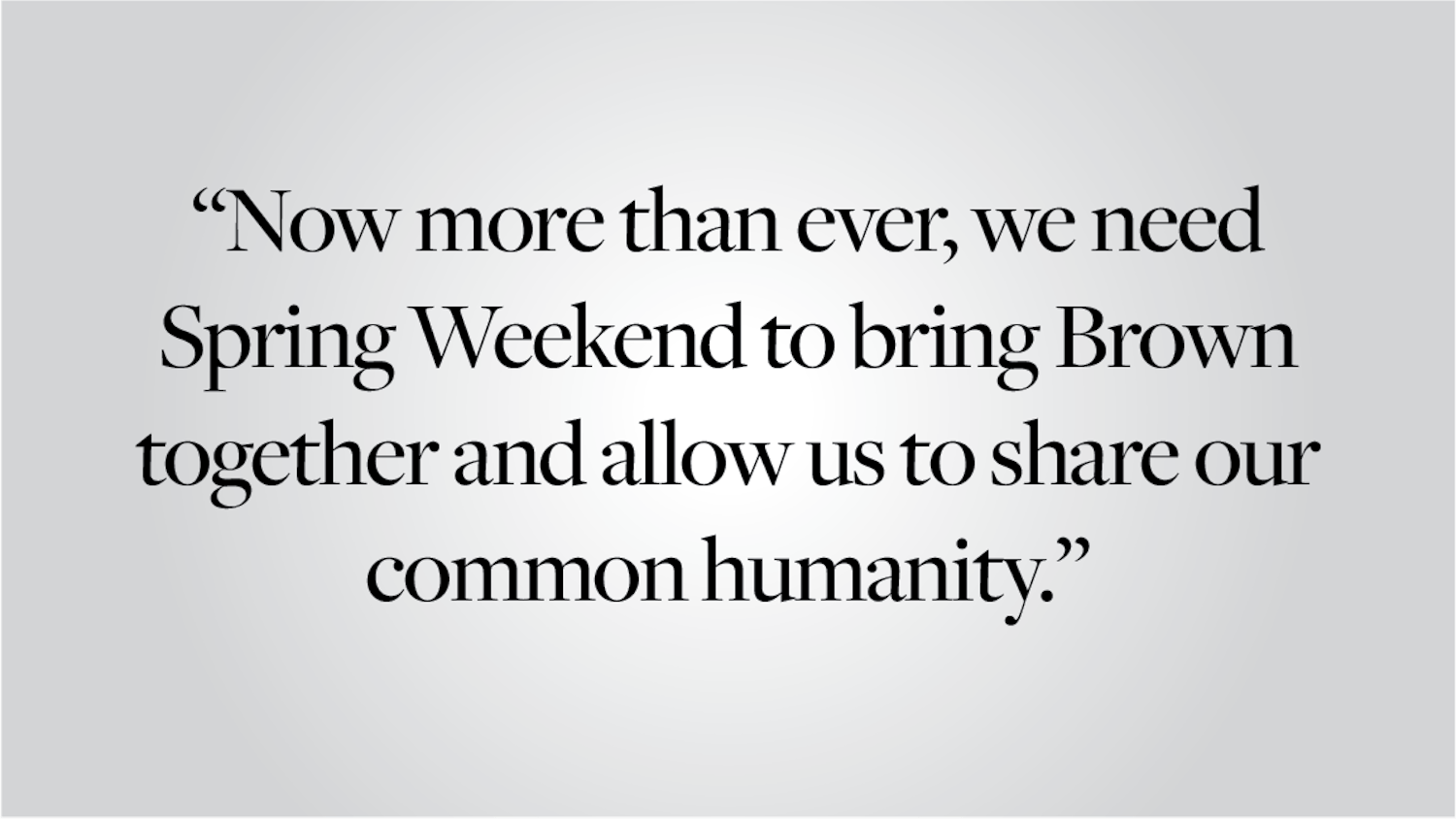The age-old adage states that college is where you find yourself and your people. At 18, I wished fervently to “find myself” falling in love with math, championing the resolution of some low-level environmental issue, graduating with straight A’s in my STEM and humanities courses alike, striking the perfect work-life balance and finding the time to write a short novella or work for NASA. I have, of course, accomplished none of these.
I have come to accept begrudgingly that most people do not accomplish any one of the aforementioned goals, much less the lot of them, and that I, too, am most people.
The idealized story we hear of success in a society like ours goes something like this: Against all odds, I became the very best. I pulled myself up by my bootstraps in a new land and made a name for myself: an honest, hardworking, breadwinning name to feed myself and generations of progeny. We are obsessed with individualism, encouraged from a young age to harness our intrepid Yankee ingenuity and shape a unique and competitive rise-of-the-underdog narrative of success for ourselves as quickly as possible.
As an applicant with minimal formal college guidance beyond Naviance scattergrams and College Confidential, it felt as though there were three ways to achieve admittance to a school like Brown: to be the very best at one thing, to be the best relative to your peers at several things, or to be second-best in absolutely everything. I was not a prodigy in any discipline; I was a teenager with no set identity, no clear wants, questionable study habits and no defined image of what life in or after college should look like.
But I had one thing going for me: fear. An undefined fear of living a narrative that was anything but the idealized American success trope. I discovered quickly that you cannot do everything and do everything perfectly. So I did everything in my power to achieve widespread, ubiquitous, undeniable second-best standing. It was possible to have everything done — just done perfectly well rather than perfectly.
As an applicant with minimal formal college guidance beyond Naviance scattergrams and College Confidential, it felt as though there were three ways to achieve admittance to a school like Brown: to be the very best at one thing, to be the best relative to your peers at several things, or to be second-best in absolutely everything.
As I followed my roommate to the first freshman orientation activities and club fests of fall 2017, I became afraid again. I was convinced that that fear was excitement, because at last I could really and truly be anyone. I could discover an untapped penchant for dance, satire writing, sustainability advocacy, Mars rover design; I could be anyone because I had never before found a grounded passion to define myself. I could be anyone because, from my view, I had already been everyone and no one at once.
It can be hard to take root in an environment like Brown with only half-formed interests.We are, for better or worse, an intense, passion-driven student body. We love our niche interest groups, but never as much as those groups love their niche interests.
Academically, our very curriculum is founded on independence, flexibility and curatorship. Where else — why else — would I have taken a thousand-level political science course my freshman fall (with zero background and no prerequisites completed, mind you) and Organic Chemistry during my senior spring?
Well-seasoned by my high school attempt to cover all interest bases, and set free to steward my education, I sprawled — across academic disciplines, clubs, service organizations and free food events. I spent more time trying on versions of myself, fabricated in my mind as the Sarah Martinez most equipped to fit the classic American underdog story, than I did with myself. I was desperate to abandon my catch-all existence but had no convictions strong enough to justify either full commitment or full abandonment of any one thing. I searched for qualifiers and identities outside of myself, and doubted those that came from within. Was I Latinx enough, first-generation-student enough, womxn enough to let myself into communities I had never known? To find the words to ask for help? The line between projection and honesty felt blurred, sinuous and riddled with impostor syndrome.
Now, caught in the final winds of a senior year devoid of lasts, I find it difficult to reflect on growth. If I have changed, I may still be too few degrees removed from the last four years to see how.
From this knee-high pedestal of hindsight, I look backwards, barely able to see above the haze of regret that plagues all people who are caught at turning points, and wonder if what I needed was time. A gap year, maybe, or some other attempt at time spent with myself in the absence of academic and peer-driven performance.
But if I strain my eyes, search the horizon, scan the dusk that is settling over my time at Brown, I can just make out a hope that maybe this zig-zag, stop-start story was the right one — even though I never became “the best,” or even “ubiquitously second-best” and couldn’t be every version of myself forever. Our present circumstances (the ongoing global pandemic, if you will), while amplifying inequities, have also brought to light the immense value of seemingly small and imperfect achievements. But I think the last four years at Brown would have taught me the same thing, even if March 2020 had played out differently: that trade-offs, compromises, and bygones result in more than loss.
After so many years of desperate scrabbling for structure, I find myself caught in a network of support where once there had been none. As unfortunate as those many late nights in the SciLi basement or the depths of GeoChem may have been, I never once felt a lack of gratitude for the surprise ice cream dashes that were run for me by peers old and new. As foolish as I have felt over the years, voicing and retracting and reformulating my misgivings, regrets, and frustrations — with BOLT, Safewalk, The Herald, even my concentration departments, certainly the University at large — I can never erase the courage, growth and much-needed community I gleaned from these spaces. Though I never rose through the ranks of prestige and achievement at Brown in the same way I did (or never did?) in high school, even my fresh-faced self can see now that, like all of us, I did, in fact, succeed. In the end, my success was not to be found in any singular or documentable win, but rather in the full sum of the lessons, mistakes and people that defined my undergraduate experience.
After four years at Brown, including a year and a half in pandemic isolation, I can finally admit that there is little I want more than to be enveloped by the masses, to be a speck in a crowd, to stand side by side again, to be a part of “most people.” Perhaps I have found that only by leaving behind the quest for individualism will I ever be just that: an individual.





